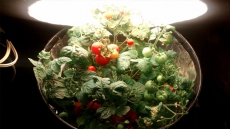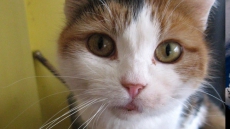Want to help clean polluted water? It might be as easy as slipping on this bikini!
Researchers have invented a new 3D-printed swimsuit capable of cleaning up oil spills and desalinising water while people swim.
A material created by University of California, Riverside engineers is the key component of the swimsuit that won an international design competition for its ability to clean water as a person swims.
The reusable material, which they call Sponge, is derived from heated sucrose, a form of sugar. It has a highly porous structure that is super hydrophobic, meaning it repels water, but also absorbs harmful contaminants.
“This is a super material that is not harmful to the environment and very cost effective to produce,” said Mihri Ozkan, an electrical engineering professor at UC Riverside’s Bourns College of Engineering.
Ozkan, along with fellow engineering professor, Cengiz Ozkan, current PhD student, Daisy Patino, and Hamed Bay, began developing the material about four years ago for applications such as cleaning up oil or chemical spills or desalinising water.
They also believe the unique water-repelling nature of the material could be used in paint applied to airplanes and satellites or as part of electromagnetic shields for such things as unmanned aerial vehicles.

The idea to incorporate the material into wearable technology, such as the swimsuit, came from Pinar Guvenc, Inanc Eray and Gonzalo Carbajo, partners of Eray Carbajo, an architecture and design firm based in New York City and Istanbul.
The team visited the Ozkan’s labs and worked with them to design the swimsuit.
The team’s design molds the Sponge material into the shape of a bikini and encapsulates it in a net-like cage made of 3D-printed elastomer that forms to the body.
The material could also be incorporated into such things as bathing suits, swimming caps and wet suits.
The Sponge material can absorb up to 25 times its own weight and it doesn’t release the absorbed materials unless it is heated at a temperature exceeding 1,000 degrees Celsius.
The contaminants will be trapped in the inner pores of the sponge material, so they don’t touch the skin.
After being used a number of times, the sponge pad can be replaced with a new pad and the old one can be recycled.
Testing at the Ozkans’ UC Riverside labs showed that the Sponge material can be reused up to 20 times without losing its absorbency.





